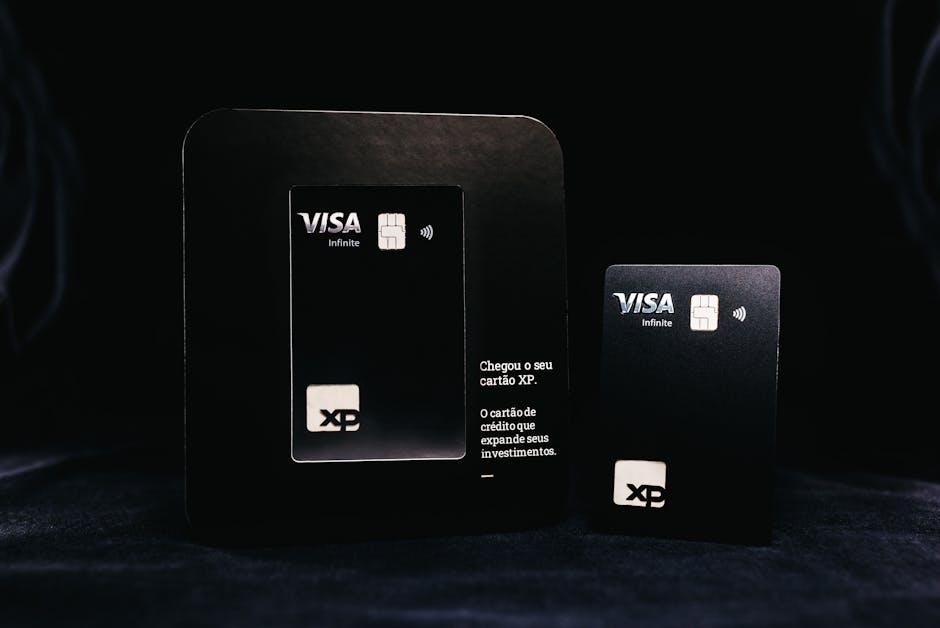Table of Contents
- Understanding the Investment Visa: An Overview of Canadian Opportunities
- Navigating the Requirements: Essential Criteria for Applicants
- Exploring Provincial Nominee Options: Tailoring Your Investment
- Maximizing Potential: Strategic Insights for Aspiring Investors
- Expert Recommendations: Steps to a Successful Application
- Q&A
- Key Takeaways


Understanding the Investment Visa: An Overview of Canadian Opportunities
The allure of becoming an investor and living in Canada is growing, as the country offers several opportunities for entrepreneurs seeking sustainable growth and a high quality of life. Canada’s friendly business environment and robust economy make it a prime destination for investors worldwide. By gaining access to Canadian investment visas, individuals can strategically contribute to the economy while enjoying the benefits of a stable society and diverse cultural experiences. Investors are encouraged to explore options such as the Start-Up Visa Program, targeted at innovative entrepreneurs ready to establish their businesses in Canada.
Key features of the Canadian investment visa landscape include access to a vibrant market, supportive governmental policies, and the possibility of permanent residency for qualifying investors. Prospective applicants can consider the following paths:
- Start-Up Visa Program – Designed for those who can create jobs and compete on a global scale.
- Provincial Nominee Programs (PNPs) – Tailored for individuals who want to invest in specific provinces, each with unique criteria.
- Quebec Investor Program – Requires a significant investment and is well-suited for experienced businesspersons.
For those interested in exploring the nuances of these opportunities, below is a comparison of some core attributes of these programs:
| Program | Investment Amount | Residency Benefits |
|---|---|---|
| Start-Up Visa | Varies | Permanent Residency |
| PNPs | Varies by Province | Path to Permanent Residency |
| Quebec Investor | $1.2 Million CAD | Permanent Residency |


Navigating the Requirements: Essential Criteria for Applicants
Embarking on the journey to secure an investment visa in Canada requires adherence to specific guidelines laid out by the Canadian government. Eligibility is a key factor, focusing on areas such as financial capability and commitment to economic development. Potential applicants need to demonstrate their capacity to contribute to Canada’s growth by showcasing substantial net worth, typically reaching a minimum amount outlined by the province or federal program they are applying for. Additionally, possessing relevant business or managerial experience can significantly strengthen an applicant’s profile, aligning with Canadian business interests.
To streamline your application process, it’s essential to be aware of the documentation requirements. Successful candidates often gather a detailed portfolio, which includes financial statements, business plans, and proof of net worth. Certain programs might also require language proficiency tests to ensure effective communication in either English or French.
- Up-to-date financial audits or reviews.
- Verified business history and performance metrics.
- Personal and business tax returns from previous years.
Furthermore, investment specifications differ by the program and region, each with unique advantages. Whether you’re considering federal options like the Start-Up Visa program or one of the various Provincial Nominee Programs (PNPs), it is crucial to evaluate the specifics, including required investment amounts and preferred sectors.
| Visa Program | Minimum Investment | Key Sectors |
|---|---|---|
| Start-Up Visa | $200,000 CAD | Innovation & Tech |
| Provincial PNP | $100,000 CAD | Agribusiness, Hospitality |
Exploring Provincial Nominee Options: Tailoring Your Investment
Investing in Canada through provincial programs offers a tailored approach to meeting both your business goals and immigration aspirations. Each province has distinct streams that cater to various sectors, whether it’s technology, agriculture, or hospitality. Understanding the specific needs and policies of a province can guide you in aligning your investment with regional growth areas. By focusing on sectors with high demand, investors not only contribute positively to the local economy but also enhance their chances of successful nomination.
When choosing a provincial program, it’s essential to weigh the criteria and benefits of each option. Some provinces may prioritize investments in rural communities to stimulate job creation, while others might focus on urban tech hubs. Consider factors like:
- Minimum investment requirements
- Net worth stipulations
- Resident business experience
These elements help potential investors strategize their investment appropriately to leverage the advantages of targeted areas.
Below is a brief comparison of investment criteria in selected provinces. Tailoring your investment to meet these unique demands not only simplifies the application process but also aligns business strategies with provincial economic objectives:
| Province | Investment Minimum | Net Worth Requirement | Priority Sectors |
|---|---|---|---|
| British Columbia | $200,000 | $600,000 | Technology, Forestry |
| Ontario | $600,000 | $800,000 | Finance, Technology |
| Manitoba | $250,000 | $500,000 | Agriculture, Manufacturing |


Maximizing Potential: Strategic Insights for Aspiring Investors
Governments worldwide are increasingly optimizing their economic frameworks to attract talented investors, and Canada stands out with its competitive investment visa programs. Understanding these opportunities requires a strategic lens. Aspiring investors must assess their personal and financial priorities, and align them with the visa options available. This approach not only maximizes investment potential but also enhances compatibility with Canada’s dynamic economic landscape. By focusing on the particular strengths of each program, such as provincial versus federal investment schemes, you can tailor your investment strategy to fit your long-term goals.
In evaluating investment options, consider the Entrepreneur Visa and the Start-Up Visa, two distinct pathways that cater to different investor profiles. The Entrepreneur Visa is best for those looking to establish or buy a business in specific provinces, necessitating a clear understanding of local market conditions. In contrast, the Start-Up Visa is aimed at innovators bringing new ideas and technologies to Canada. Both visas require detailed business plans, a robust understanding of industry-specific regulations, and, most importantly, passion for the business sector you choose to invest in.
- Assess personal financial capabilities and how they align with visa requirements.
- Research the economic climate and growth potential in various Canadian provinces.
- Prepare a convincing business proposal aligned with market demands.
- Understand the nuances of provincial policies versus federal requirements.
| Visa Type | Key Focus | Initial Investment | Special Requirement |
|---|---|---|---|
| Entrepreneur Visa | Business Ownership | Varies by Province | Business Experience |
| Start-Up Visa | Innovation & Tech | Angel/VC Support | Letter of Support |


Expert Recommendations: Steps to a Successful Application
When applying for an investment visa in Canada, it is crucial to follow a strategic plan to ensure success. Begin by conducting thorough research to understand the visa requirements and legal intricacies. This step involves familiarizing yourself with Canada’s economic landscape, industry trends, and identifying provinces that offer the best investment opportunities. Consulting with immigration experts and financial advisors can provide personalized insights and help tailor your investment strategy to meet Canada’s economic needs.
The next step is to compile a comprehensive business plan that aligns with Canadian economic growth requirements. Your plan should detail your investment goals, financial projections, market analysis, and management structure. It’s important to demonstrate how your business will create jobs and contribute to the local economy. Use clear and compelling language, supported by statistical data and realistic financial forecasts, to make your case more persuasive. Remember, the quality of your business plan can significantly impact your application’s credibility.
Prepare the necessary documentation meticulously, as incomplete or inaccurate submissions can lead to delays. You will need to provide proof of financial resources, such as bank statements, tax returns, and asset valuations, to verify your investment capacity. Additionally, documentation should include background checks, education credentials, and any previous business experience that’ll bolster your application’s strength. Engage with legal professionals to review these documents to ensure they meet Canadian immigration standards and are correctly formatted.




0 Comments